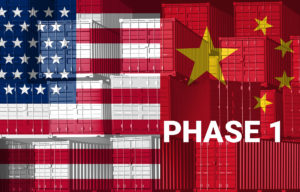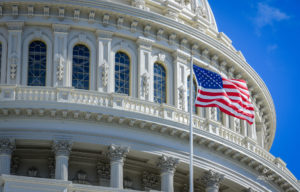News & Insights
U.S. Suspends Export Privileges of Chinese Tech Giant ZTE
On April 16th, the U.S. Commerce Department’s Bureau of Industry and Security (“BIS”) imposed a denial order against ZTE Corporation and ZTE Kangxun Telecommunications, Ltd. (“ZTE Kangxun”), located in Shenzhen, China, for making false statements in violation of the companies’ settlement of previous violations of the U.S. Export Administration Regulations (“EAR”). As a result, the ZTE companies have been designated on the BIS’ Denied Persons List and U.S. companies that have been supplying parts and components to the ZTE companies or otherwise engaged in business with these companies, including the provision of any support or technical data, were required to terminate their dealings with them as of April 16, 2018. It has been reported that ZTE, China’s 2nd largest manufacturer of telecommunications equipment, had sourced roughly 30% of the components used in its smartphones from U.S. suppliers.
By way of background, in March 2017, ZTE agreed to a combined civil and criminal penalty of $1.19 billion for, among other things, illegally shipping telecommunications equipment that was subject to the EAR to Iran and North Korea in violation of U.S. law. The BIS agreed to suspend its proposed denial of the companies’ export privileges provided that they satisfied all of the terms of the settlement agreement and refrained from committing additional EAR violations. However, the Commerce Department this week moved forward with the denial order as it was discovered that the companies had made false statements to the BIS and failed to comply with the terms of their settlement. Specifically, ZTE originally promised to fire four senior employees and take disciplinary action against other responsible employees, including reducing their bonuses or issuing letters of reprimand. ZTE did in fact fire the four employees as promised; however, the companies paid full bonuses to the remaining employees and failed to issue any letters of reprimand.
Under the April 16th denial order, the ZTE companies were added to the Denied Persons List and are prohibited from participating in any way in any transaction that is subject to the EAR. See https://www.bis.doc.gov/index.php/recent-changes-to-the-denied-persons-list. In addition, it is now unlawful for U.S. individuals and companies to engage in any export transaction involving the ZTE companies without prior BIS authorization. For example, the following activities are now prohibited under the denial order–
- Exporting or reexporting (directly or indirectly) any item that is subject to the EAR to the ZTE companies, which includes not only commodities and software but also technical data;
- Facilitating the acquisition or attempted acquisition by the ZTE companies of ownership, possession, or control of any item subject to the EAR that has been or will be exported from the United States, including financing or other support activities;
- Acquiring or facilitating the acquisition from the ZTE companies of any item subject to the EAR that has been exported from the United states;
- Obtaining from the ZTE companies in the United States any item subject to the EAR with knowledge or reason to know that the item will be exported from the United States;
- Engaging in any transaction to service any item subject to the EAR that has been or will be exported from the United States and which is owned, possessed or controlled by the ZTE companies—the term “service” includes installation, maintenance, repair, modification or testing; or,
- Servicing any item, of whatever origin, that is owned, possessed or controlled by the ZTE companies if such service involves the use of any item that is subject to the EAR that has been or will be exported from the United States.
The BIS’ denial order and the prohibitions outlined above will be imposed against the ZTE companies for a period of seven years, until March 13, 2025. See: https://www.commerce.gov/sites/commerce.gov/files/zte_denial_order.pdf.
This denial order will impact many U.S. companies that supply parts and components to ZTE or otherwise provide technical support to them. It is also possible that the BIS may impose denial orders against additional ZTE entities in the near future. If you have any questions pertaining to the recent denial order imposed against the ZTE companies, U.S. export controls or international trade issues, please contact Melissa Proctor at Miller Proctor Law PLLC (melissa@millerproctorlaw.com).
News & Insights

U.S. State Department Increases Maximum Civil Penalty Amounts
As of January 3, 2018, the maximum civil penalty amounts that may be assessed by the U.S. State Department for violations of certain laws and regulations have been adjusted upwards for inflation per the Federal Civil Penalties Inflation Adjustment Act

Phase 1 of a Comprehensive Economic and Trade Agreement Signed with China, Certain Section 301 Tariffs on Chinese Origin Goods to Be Lowered on February 14th
On January 15, 2020, the United States and China signed Phase 1 of a comprehensive Economic and Trade Agreement, which is intended to address a wide array of issues that are at the heart of the ongoing trade dispute between


